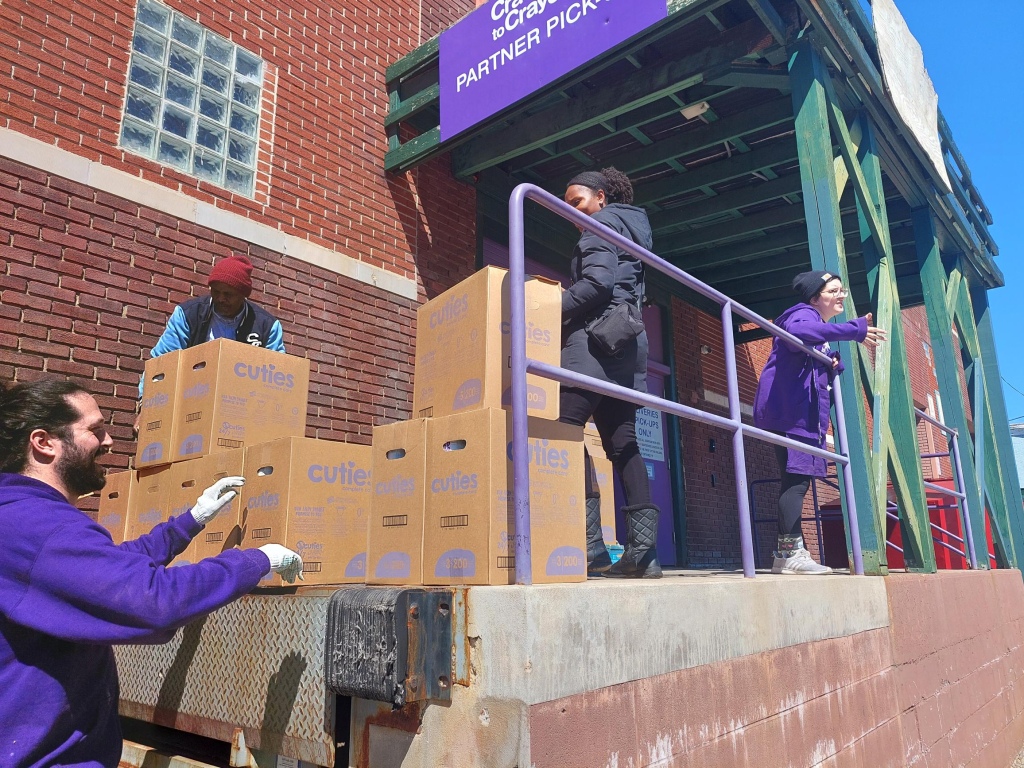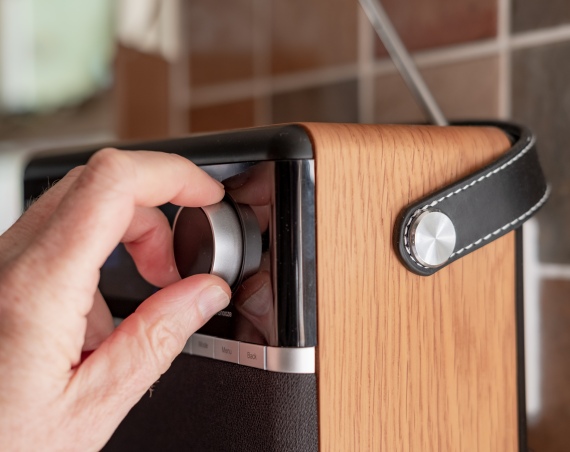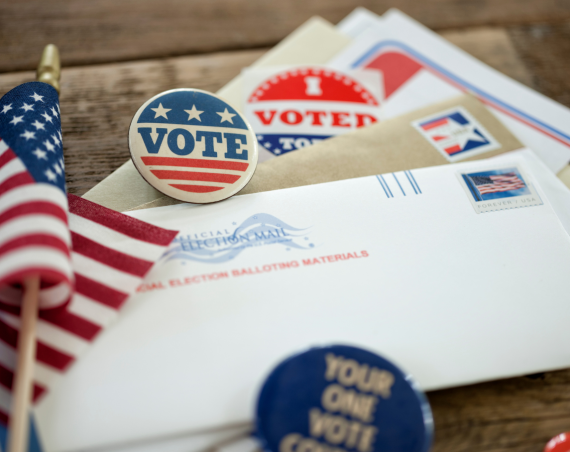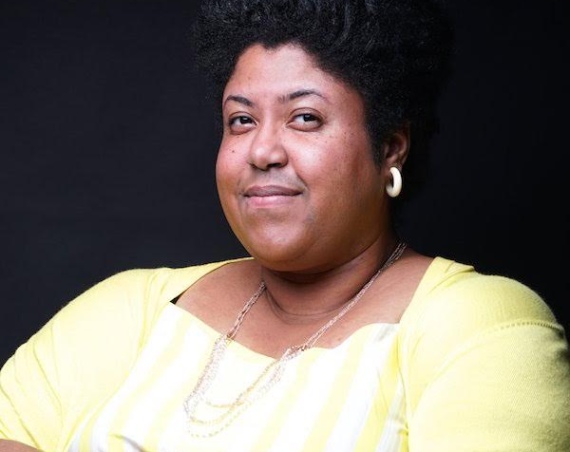Organizations, churches, and community leaders in Germantown are finding solutions.

Diapers are an expensive necessity for families with young kids. According to the National Diaper Bank Network, a monthly supply can average anywhere from $80 to $100 per baby, depending on the source and age of the child.
Families across the country are feeling the pinch. After COVID-19 and rising costs associated with inflation, more and more folks with small children are having a hard time affording diapers. In fact, according to a National Diaper Bank Network study from 2023, one in two families are struggling to afford clean diapers, an increase from 2017, when one in three families reported struggling.
Philadelphia and the Germantown neighborhood are feeling it, too. Michal Smith is the executive director of Cradles to Crayons, a non-profit organization that provides essentials to children throughout the Greater Philadelphia region, including diapers, clothing, baby items, backpacks, school supplies, hygiene items, and new socks and underwear for older kids.
She says they’ve never seen such a demand and urgency for diapers. It’s one of the reasons a representative from Cradles to Crayons attended the recent Community State Budget Briefing meeting in Germantown, bringing awareness of the need to elected officials.
“We started when we went into COVID by supplying probably between 300,000 and about 600,000 diapers annually to our partners. By the end of COVID, we had supplied over 3.6 million diapers to families. And today we supply approximately 2.5 million to 3 million diapers a year to families in the region. And that’s just scratching the surface,” said Smith.
Cradles to Crayons does not provide the items directly to families but instead provides over 150 schools, social service, and human services agencies with diapers, clothing, and other basic supplies for children. Smith says historically, the organization didn’t buy new products, but with such a need for diapers, they started bulk contracts with vendors to buy them at half or one-third of the retail cost in an effort to distribute as many diapers as possible.
Smith also stresses that diapers are only tax-exempt in certain states. And while Pennsylvania is one of those states, diapers aren’t currently covered under any existing social programs and can only be bought with money from Temporary Assistance for Needy Families (TANF), which is just over $400 a month.
Pennsylvania state government has introduced legislation that would allow waivers to purchase menstrual hygiene products and diapers. The federal government has introduced legislation for $200 million in funding over the next three years to provide diapers and diapering supplies to families in need and allow diapers to be bought as qualified medical expenses through Health Savings Accounts (HSAs), which Smith says is a drop in the bucket given the need, but still a step in the right direction.
Other local solutions for getting diapers to families include Diaper Drives and Community Baby Showers, often hosted by active community organizations, churches, and local elected officials.
State Senator Sharif Street’s office will host a Community Baby Shower on July 13 from 10:00 a.m. to 1:00 p.m. at Aramark Student Training and Recreation Complex.
Melieka Young, assistant servant leader of the ENON Doulas For His Kingdom Ministry, has noticed the increase in Community Baby Showers and Diaper Drives. At ENON, Young says they try to make sure they always have diapers available in their new Lactation Lounge for folks to use as they attend services, but they also put a call out to their congregation to donate diapers for their ministry’s Community Baby Showers.
Omar Galloway is the pastor of Nehemiah Tabernacle, Inc., another faith-based institution in Germantown that has always tried to provide community service, including diaper distribution, in the neighborhood. Galloway and his husband, Jeffrey Dickerson, run Nehemiah out of their home, which is challenging when there’s such a great need for diapers and other basic necessities. He says that the amount of diapers he can distribute is limited by lack of space and funding. He suggests petitioning the City Council for emergency budget funding and then partnering with community organizations and churches already on the ground doing the work to distribute diapers.
“They need to partner with organizations that are working in the community, like myself and my congregation. There’s several congregations around the city that do what I do. They see a need, and they make sure they have the need. Like in some congregations, they focus just on food, and they make sure people get food. Sometimes some congregations serve hot meals and they serve regular food. And they make sure they serve food every week. So people are out there doing the work, but they need to identify the nonprofits and the congregations that are doing it,” said Galloway. Galloway says several congregations and organizations give away food, but not as many distribute diapers, and the ones that do need support.
The Philly Joy Bank is another possible solution to help families bridge the gap in affording diapers and other necessities for young children. The program, which started at the end of June, will provide $1000 a month, no strings attached, to 250 expecting parents from Cobbs Creek, Strawberry Mansion, and Nicetown-Tioga beginning in their second trimester of pregnancy and extending postpartum for one year.
The Philly Joy Bank is run through the Division of Maternal, Child, and Family Health with the Philadelphia Department of Public Health. Nia Coaxum, program manager for Philly Joy Bank, says the program is a community-led and co-designed initiative developed by the Philadelphia Community Action Network (CAN), a collective impact stakeholder group whose goal is to reduce racial disparities in the city’s infant mortality rate by fostering a learning community and coordinating cross-sector actions.
Coaxum says the program’s goal is to improve birth outcomes by targeting the populations most vulnerable to poor outcomes. Participants can use this money to address their basic needs, including buying baby necessities, which will alleviate financial stress.
The Division of Maternal, Child, and Family Health also offers various direct service programs that offer supplies to participants, including diapers. More information on these programs can be found on their website.
Smith says she definitely sees more awareness of diaper insecurity throughout the state through the efforts of the Pennsylvania Black Maternal Health Caucus. But community leaders and organizers know it will take more than our elected officials to provide awareness. The action and collaboration of community organizations will play a part in supporting all our families.



